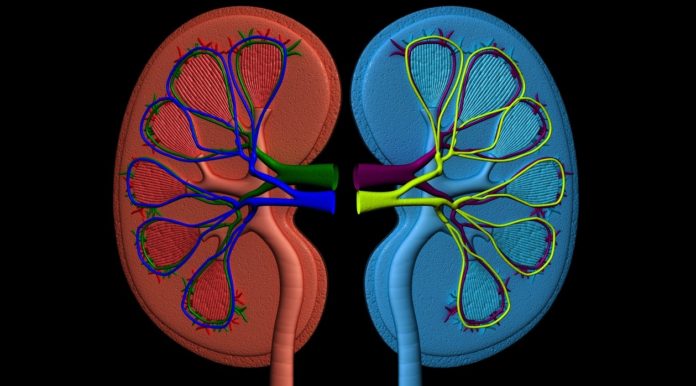CKD or Chronic Kidney Disease, is a condition characterized by a loss of kidney function over time. When the kidneys aren’t functioning properly, waste builds up in the bloodstream which makes people sick. The kidney filters waste and excess fluids from blood, which are then excreted in urine. At advanced stages of chronic kidney disease, levels of fluid, electrolytes, and waste reach dangerous levels. CKD progresses in 5 stages, stage 1 has the highest kidney function, and stage 5 indicates the kidneys are failing. CKD is a chronic disease, which means that there is no cure, and the kidneys will eventually fail. But it is possible to manage chronic kidney disease to maximize the life left in your kidneys.
GFR (glomerular filtration rate) is the primary measure of kidney function. It measures the ability of the glomeruli to filter out the waste products in the blood. GFR is the basis for the five stages of CKD. A GFR test can be done to determine your level of kidney function. GFR is determined from a blood creatinine test, as well as age, gender, and race. Urine tests can also be used to reveal abnormalities in kidney function. A CT scan may be performed to see whether there are kidney stones or tumors, and to assess the structure of the kidneys and urinary tract as this could be the cause of the decline in kidney function.
It is possible to improve your quality of life by properly managing your CKD. Management options include: medications to lower cholesterol treat anemia, and lower blood pressure, medications to relieve swelling and to protect bones, or a lower protein diet to minimize waste products in the blood. Dialysis or a kidney transplant is needed if your kidney disease progresses to stage 5, also known as end stage renal disease. At this stage of CKD careful restrictions of the consumption of salt, potassium, and protein need to be implemented to preserve kidney function. Avoiding alcohol, following instructions on over the counter medications, staying at a healthy weight, quitting smoking, and managing your other health conditions can also ensure your kidneys stay healthy for as long as possible.

